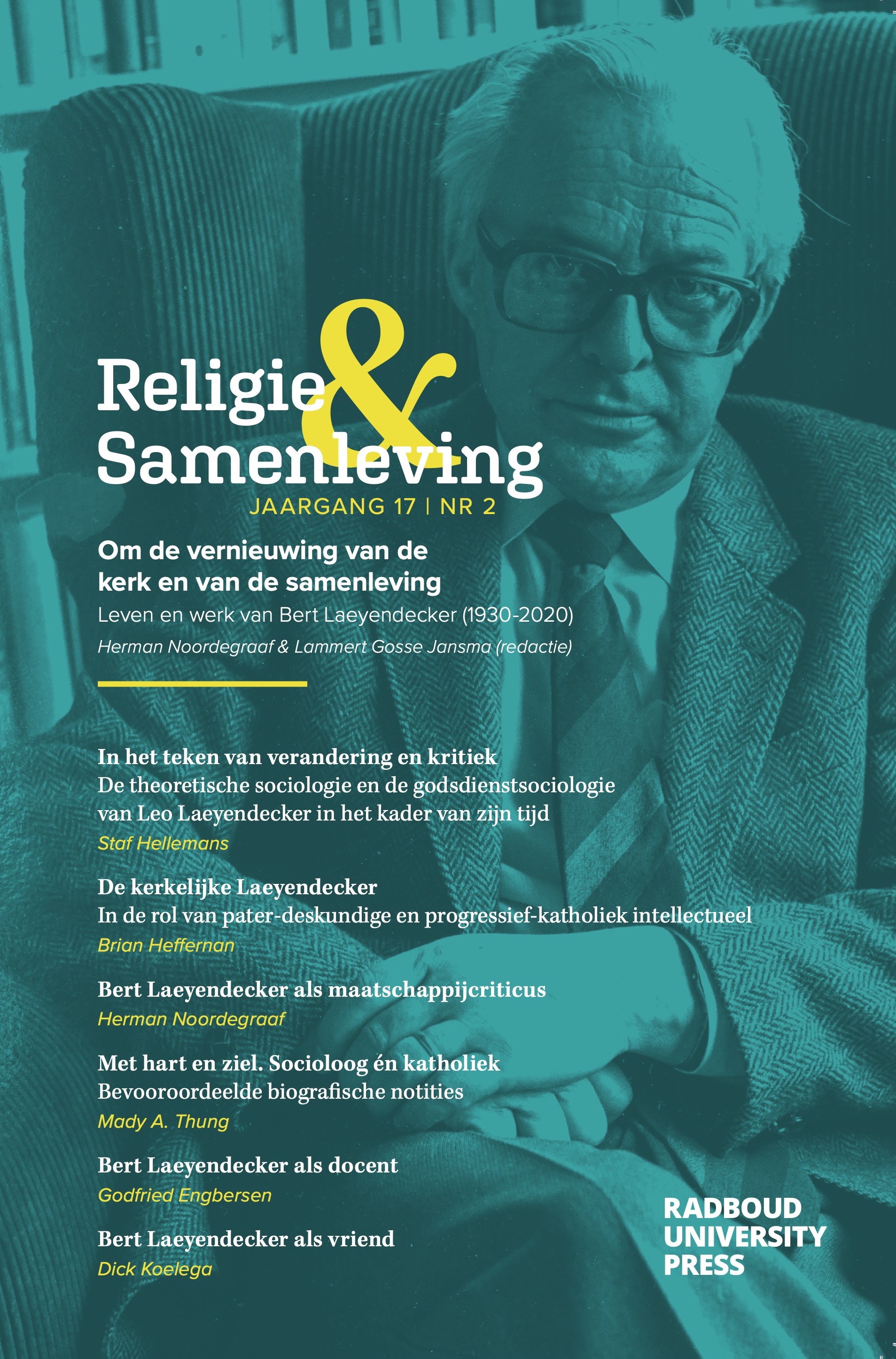De kerkelijke Laeyendecker
In de rol van pater-deskundige en progressief-katholiek intellectueel
DOI:
https://doi.org/10.54195/RS.12438Samenvatting
Leo Laeyendecker was not just a renowned sociologist, he was also a prominent voice in late-twentieth-century Dutch Catholicism, first as an Augustinian priest and then as a progressive public intellectual. This article offers a biographical sketch of the Catholic Laeyendecker, and focuses specifically on his performance of the roles of priest-scientist and Catholic public intellectual. He became a sociologist at the behest of his superiors, who hoped he would be able to assist church leadership with scientifically sound policy advice. But once he had completed his training, his objective as a priest-scientist was to use sociological analyses to convince his fellow friars and Catholics that the realities of modernity militated for church renewal. As a public intellectual, he continued to advocate a progressive agenda in an era in which church leaders were retreating from the specific reformist stance of their predecessors. This new context prompted another change of role, from that of a voice within the wider church community to that of theorist of its progressive wing.




